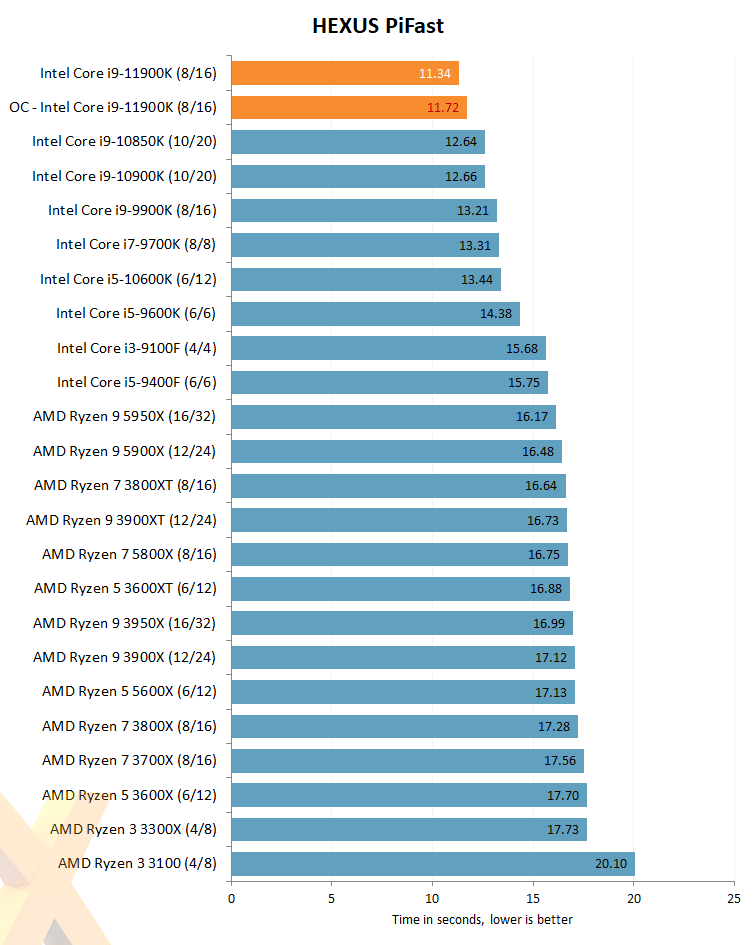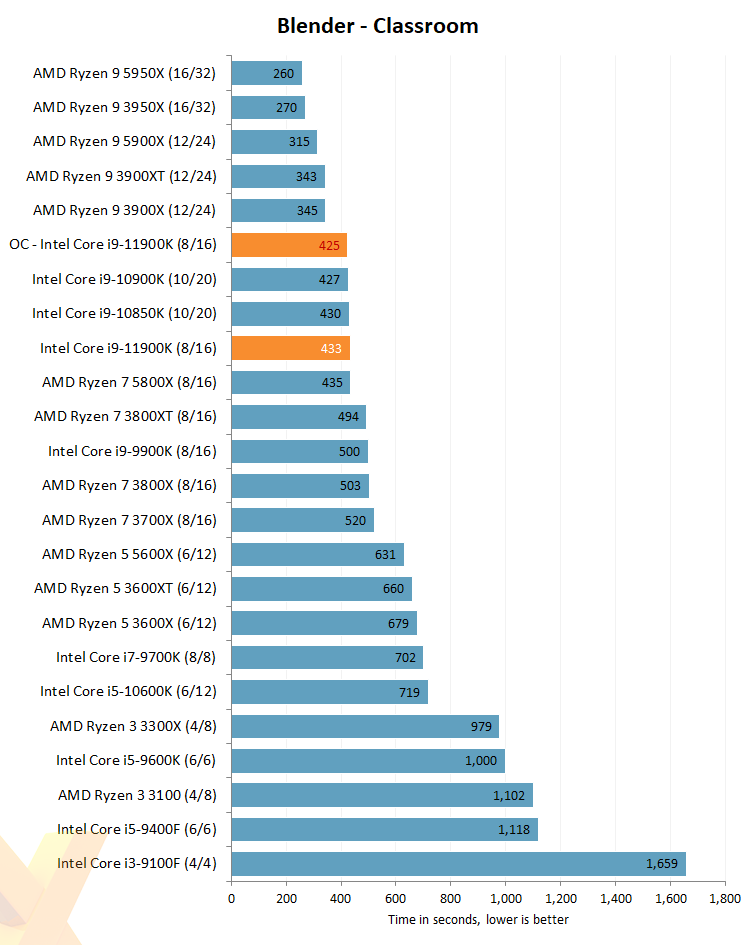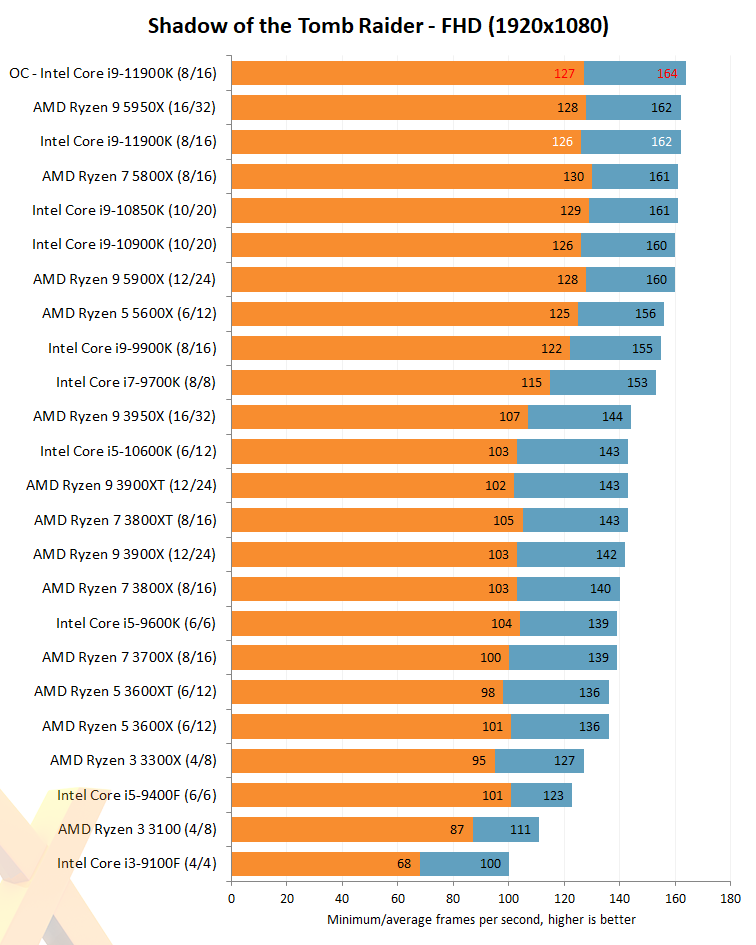Overclocking Tests
Rocket Lake-S requires plenty of juice at the MCE-optimised frequencies run for the benchmarks on the previous pages. Overclocking by running the highest all-core speed at a set 1.4V gave us a final frequency of 5.1GHz, which is lower than what the chip boosts to on fewer cores.
You may ask the question as to why bother? This all-core 5.1GHz speed is the same as the supposed frequency the chip runs at with Adaptive Boost Technology enabled, while CPU-only power consumption rises to around 300W and puts our impressive Noctua cooler under tremendous pressure. The differences are minor, insofar as manually overclocking guarantees the frequency is applied at all times, not just when ambient conditions are correct.

Running all-core this way, the low-load PiFast result is actually slower.

Multi-thread benchmarks show a small gain in performance, intimating it's not really worth overclocking as one increases the chances of failure without a decent reduction in rendering time.

A bit of extra frequency also helps in gaming.
Would we manually overclock this chip if using premium air cooling? Absolutely not.









